HOME IMPROVEMENT
Visit https// mobilehomeexteriors.com to Discover the Newest Innovations and Trends for Remodeling Your House
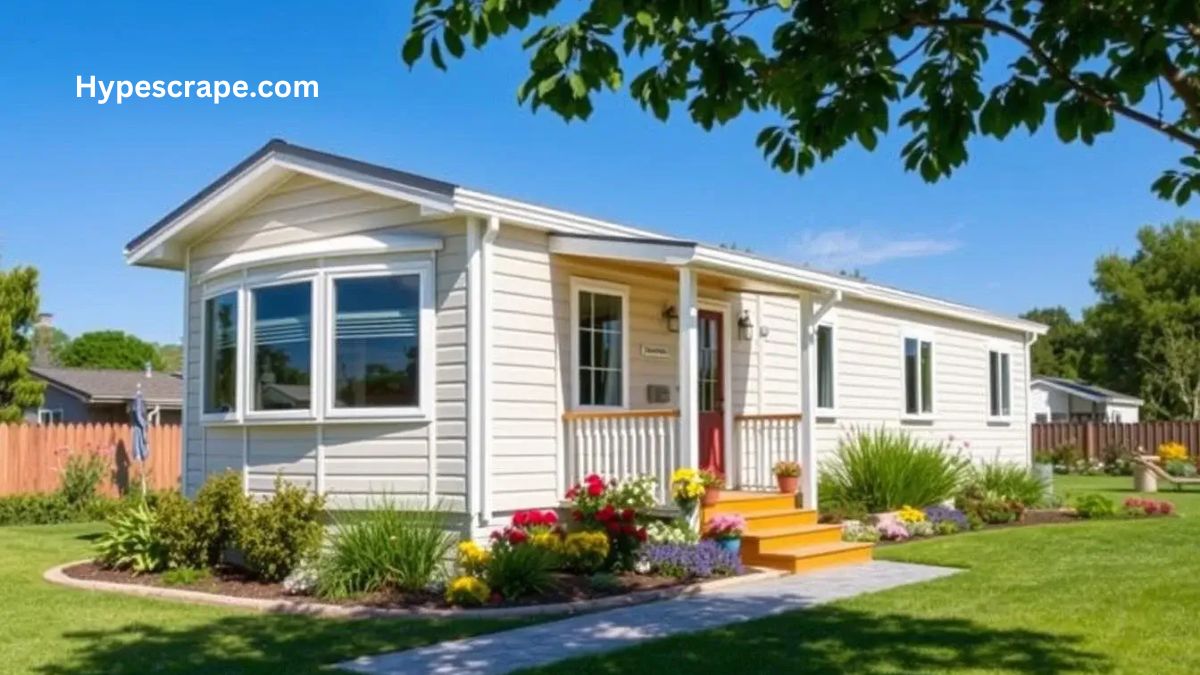
Mobile homes are an affordable housing option for many people, but their exteriors often lack visual appeal. However, with a little creativity and some smart design choices, you can easily transform the exterior of your https// mobilehomeexteriors.com to make it stand out in any neighborhood.
Color Scheme
One of the easiest ways to change the look of your mobile home’s exterior is by choosing a new color scheme. While most traditional mobile homes come in a standard white or beige color, don’t be afraid to experiment with bolder hues. Bright colors such as yellow, blue, and red can add character and personality to your home’s exterior.
It’s important to choose colors that complement each other and work well with the
In the realm of home improvements, mobile homes are making waves with innovative exterior trends that promise to elevate both style and functionality. Transforming your mobile home into a visual marvel is more accessible than ever, thanks to emerging design concepts and technological advancements. But what are these trends, and how can they enhance your living experience? Let’s explore.
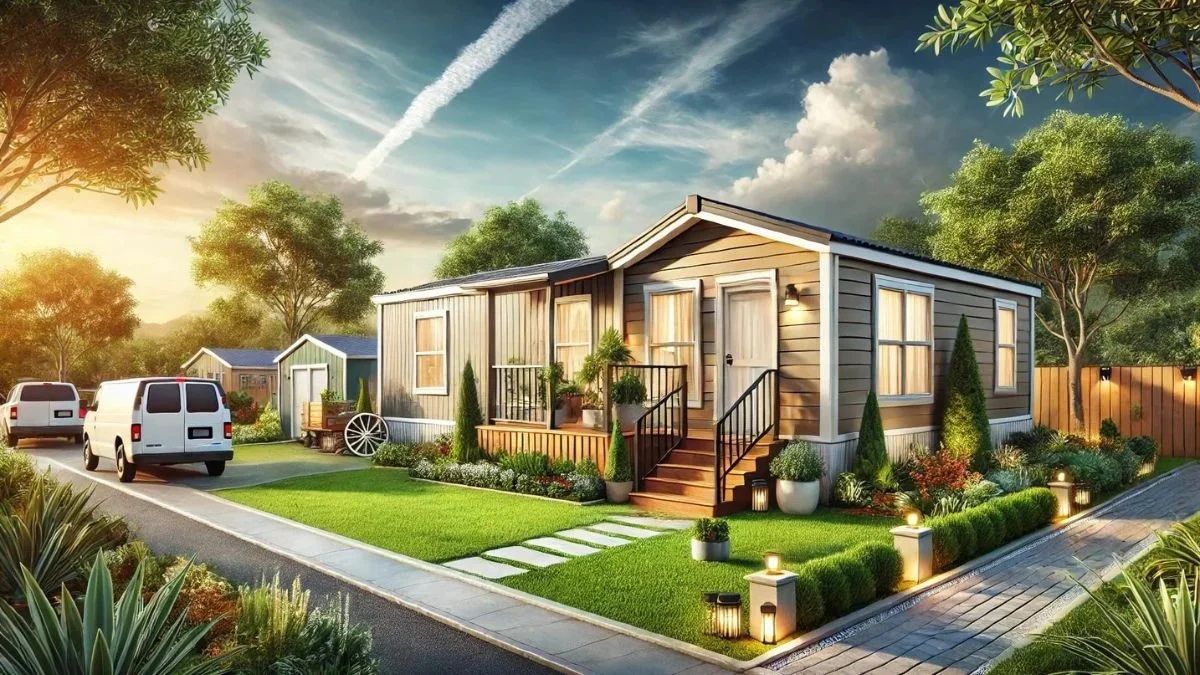
1. Rethinking Mobile Home Aesthetics
Gone are the days when mobile homes were considered less stylish compared to traditional houses. Today, homeowners are keen on aesthetics that resonate with modern appeal and personal tastes. This shift in perspective has led to incorporating sleek lines, bold colors, and contemporary textures into mobile home designs. Many are opting for minimalist exteriors, which create a chic and uncluttered appearance. The use of sustainable materials not only adds to the aesthetics but also promotes eco-friendly living.
The personalization of mobile home exteriors has gained popularity. Homeowners are customizing their facades with unique cladding, decorative trims, and personalized color palettes. This trend not only enhances the overall look but also reflects individual personality and lifestyle. With the variety of options available, each mobile home can tell a unique story.
Additionally, integrating natural elements such as wood or stone facades adds a warm touch to mobile homes. These materials provide a seamless blend with the surrounding landscape, offering a harmonious living environment. The natural textures invoke a sense of calm while elevating the home’s visual appeal.
2. Energy Efficiency Takes Center Stage
With growing environmental awareness, energy efficiency has become a pivotal aspect of home renovations. Mobile homes are now incorporating innovative solutions to reduce energy consumption and increase sustainability. Solar panels are gradually becoming a staple, providing a renewable energy source and reducing utility bills.
Beyond solar power, there is an increasing emphasis on effective insulation. Quality insulation ensures temperature regulation, keeping the interior comfortable year-round and reducing the reliance on heating and cooling systems. Insulation advancements have made it possible for mobile homes to maintain energy efficiency without compromising style.
Energy-efficient windows and doors are also trending. These features minimize heat transfer, maintaining comfortable indoor temperatures. Modern designs come with improved features like double glazing and low-E coatings, which further enhance energy conservation efforts.
3. Smart Technology Integration
Incorporating smart technology into mobile homes is revolutionizing how homeowners interact with their living spaces. This advancement simplifies everyday tasks and enhances security, offering a new level of convenience. Smart lighting systems, for instance, allow control over lighting scenarios, providing both functional lighting and ambiance.
Security systems are also seeing a transformation with the integration of smart locks and security cameras. These devices provide peace of mind, allowing homeowners to monitor their property remotely. The ease of access and control via smartphones or smart speakers means that safety is just a click away.
Home automation is extending beyond security and lighting to encompass climate control and entertainment systems. Mobile home residents can now adjust their thermostats, control their sound systems, and manage appliances with voice commands or through mobile apps, optimizing comfort and efficiency.
4. Outdoor Living Spaces
The concept of outdoor living is becoming increasingly popular for https// mobilehomeexteriors.com, transforming modest exteriors into luxurious retreats. Decks and patios have become essential features, offering a place to relax, entertain, and enjoy the outdoors without leaving the comfort of home.
Many homeowners are opting for multi-functional outdoor spaces that include dining areas, lounge zones, and even outdoor kitchens. Weather-resistant furnishings and accessories ensure longevity and comfort, making these exterior spaces usable throughout the year.
Landscaping plays a critical role in enhancing outdoor living spaces. By incorporating plants, water features, and lighting, homeowners can create a serene environment that complements the mobile home’s exterior design. This approach not only increases curb appeal but also enhances the overall living experience.
5. Sustainable Landscaping Practices
Sustainability is at the forefront of modern landscaping trends, with mobile homeowners focusing on eco-friendly practices. Drought-resistant plants and native species are being incorporated to reduce water consumption while providing vibrant greenery. These plants require less maintenance and are beneficial to local ecosystems.
Rainwater harvesting systems are another sustainable practice gaining traction. By collecting and utilizing rainwater for irrigation, homeowners can maintain lush landscapes without depleting local water resources. This method is both cost-effective and environmentally responsible.
Permeable paving solutions are replacing traditional concrete paths and driveways. These materials allow water to seep through, reducing runoff and promoting groundwater replenishment. Permeable pavements are available in various designs, enhancing the aesthetic appeal while supporting environmental goals.
6. Durable and Innovative Siding Options
Siding is a crucial component of https// mobilehomeexteriors.com, providing protection against the elements and contributing to the home’s visual identity. Recent innovations in siding materials offer enhanced durability and aesthetic prospects. Vinyl siding remains a popular choice due to its affordability and low maintenance. However, new patterns and colors have allowed vinyl to mimic other materials while retaining its practical benefits.
Fiber cement siding has emerged as a favorite for those seeking durability and resistance to harsh weather conditions. It offers the appearance of wood or stone without the associated upkeep, making it a practical and stylish choice for many homeowners.
Metal siding, particularly aluminum and steel, is gaining attention for its longevity and modern appeal. These materials are fire-resistant and provide excellent protection, ideal for homeowners prioritizing safety and durability.
7. Roof Innovations for Mobile Homes
Roofing advancements play a pivotal role in the overall efficiency and appearance of mobile homes. Modern roofing materials are designed to withstand severe weather conditions while enhancing curb appeal. Metal roofs are increasingly popular due to their durability and sleek appearance. They offer excellent protection and can significantly extend the lifespan of a mobile home.
Cool roofing technologies are another innovation designed to reflect more sunlight and absorb less heat. These roofs reduce energy costs by maintaining cooler indoor temperatures, especially in warmer climates. Cool roofs are available in various styles and colors, ensuring a fit for any design preference.
Green roofs, though less common, are making their way into mobile home designs. These living roofs offer insulation, manage stormwater, and provide a natural habitat for local wildlife. While they require more maintenance, the environmental benefits and aesthetic value are undeniable.
8. Windows and Doors Make a Statement
Windows and doors are vital components of mobile home exteriors, contributing to energy efficiency and aesthetic appeal. Modern designs are focusing on larger windows to maximize natural light and create a connection with the surrounding environment.
Double-glazed windows offer improved insulation, reducing heat loss and enhancing soundproofing. These windows are available in various styles, from sliding to casement, allowing customization to suit different architectural designs.
Entry doors are no longer just functional; they are a focal point for many https// mobilehomeexteriors.com. With options such as fiberglass and steel, homeowners can choose doors that provide security and complement the overall design. Customizable features like glass panels and decorative hardware add a personalized touch.
9. High-Tech Security Features
Security has always been a priority for homeowners, and technological advancements are enhancing protection measures for mobile homes. High-tech security systems now offer comprehensive coverage, from surveillance cameras to smart alarms.
Video doorbells have become a popular addition, allowing homeowners to monitor their entrance from anywhere. These devices provide a sense of security and convenience, making it easier to manage access to the home.
Advanced alarm systems offer remote monitoring and the ability to control security settings via smartphone apps. The integration of sensors and cameras ensures that every corner of the property is covered, providing peace of mind for residents.
10. Exterior Lighting Trends
Exterior lighting is an essential aspect of mobile home design, improving safety and aesthetics. Modern lighting solutions offer versatility, allowing homeowners to create the perfect ambiance for their outdoor spaces.
Solar-powered lights are a sustainable option, harnessing sunlight to illuminate pathways, gardens, and entrances. These lights are cost-effective and environmentally friendly, requiring minimal maintenance.
LED lighting has transformed outdoor illumination with its energy efficiency and long lifespan. Available in various styles and colors, LED lights can enhance architectural features and landscaping elements, creating a warm and inviting atmosphere.
11. Color Trends in Mobile Home Design
Color plays a significant role in the overall appearance of mobile homes, with current trends emphasizing bold and contrasting palettes. Earthy tones like terracotta, olive green, and slate gray are popular for their ability to blend with natural surroundings.
Accent colors are being used to highlight architectural features and create visual interest. Bright hues like turquoise, coral, and mustard are making appearances on trims, doors, and shutters, adding a playful touch to the exterior.
Monochromatic schemes are another trend, offering a sophisticated and cohesive look. By using varying shades of a single color, homeowners can create depth and interest without overwhelming the design.
12. Maintenance Tips for Long-Lasting Beauty
Proper maintenance is essential to preserve the beauty and functionality of https// mobilehomeexteriors.com. Regular cleaning and inspections can prevent costly repairs and extend the life of materials.
Pressure washing the exterior removes dirt and mildew, keeping the facade looking fresh and vibrant. It’s important to use appropriate settings and techniques to avoid damaging surfaces.
Inspecting and sealing any gaps or cracks in siding, roofing, and windows helps maintain energy efficiency and prevents water damage. Seasonal checks ensure that small issues are addressed before they become major problems.
13. Collaborate with Design Experts
For those looking to maximize the potential of their https// mobilehomeexteriors.com renovation, collaborating with design experts can be invaluable. Professional designers can offer insights into the latest trends and provide personalized recommendations based on individual preferences and budgets.
Experts can help homeowners visualize the transformation with 3D renderings and mood boards, ensuring that the final result aligns with their vision. From material selection to color coordination, design professionals guide clients through every step of the process.
Working with experts also streamlines the renovation process, coordinating between contractors, suppliers, and homeowners. This collaboration ensures that projects stay on schedule and within budget, delivering exceptional results.
Reimagining mobile home exteriors is an exciting venture that combines creativity, innovation, and practicality. Whether you’re looking to enhance energy efficiency, improve aesthetics, or integrate smart technology, the possibilities are endless.
By exploring these trends and innovations, homeowners can create a mobile home that not only stands out but also enhances their quality of life. For more inspiration and guidance, reach out to our team at https// mobilehomeexteriors.com and discover how we can help bring your vision to life.
HOME IMPROVEMENT
Rooms You Should Focus on First When Renovating Your Home
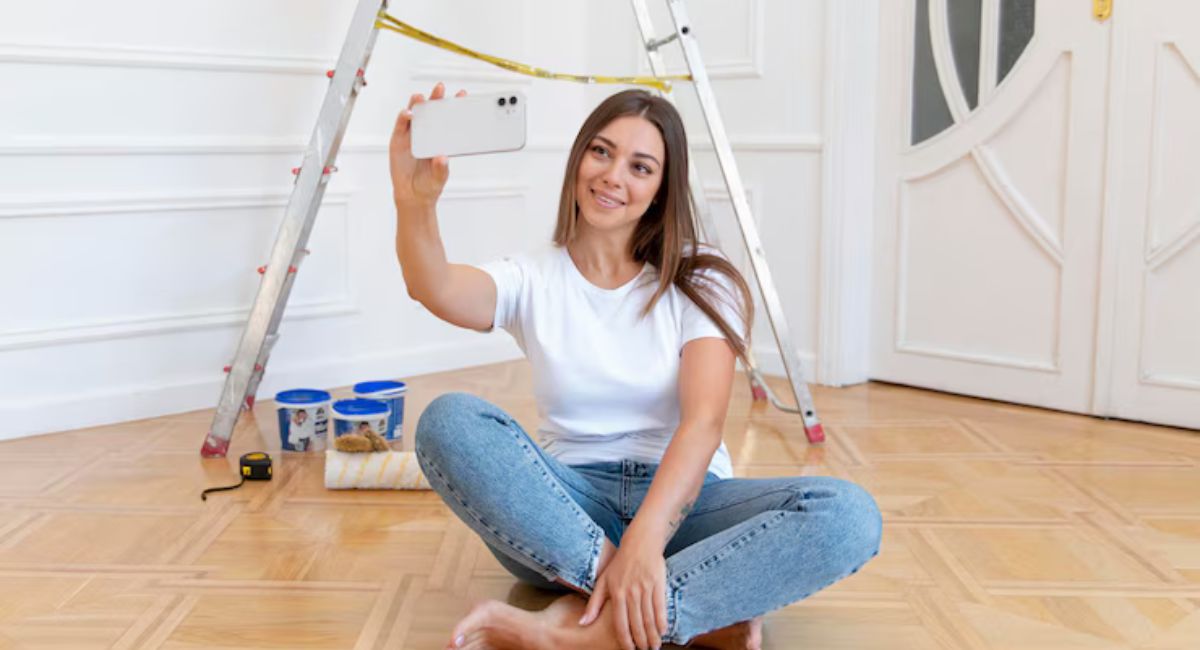
Renovating your home can be an exciting and daunting task. Whether you’re looking to upgrade a single room or transform the entire house, it’s crucial to approach the process strategically. Focusing on the right areas first will not only make the renovation process smoother but also provide the most significant impact on the comfort and value of your home.
If you’re wondering which rooms to tackle first, here are the essential spaces you should prioritize in your home renovation journey.
1. Kitchen
The kitchen is considered the heart of the home. It’s where families gather, meals are prepared, and memories are made. Therefore, renovating the kitchen should be at the top of your list. An updated kitchen can enhance both functionality and aesthetics, making it a great investment that boosts your home’s value. Focus on upgrading the cabinets, countertops, and appliances. Adding a fresh coat of paint and updated fixtures can also make a huge difference without breaking the bank.
Additionally, consider the layout of the space. Open-plan kitchens are trendy and functional, but if you’re working with a smaller area, you may want to consider maximizing storage and creating an efficient work triangle between the stove, sink, and refrigerator.
2. Bathrooms
Bathrooms are another area that can benefit from a renovation. Whether it’s a small powder room or a master ensuite, bathrooms see daily use and can quickly become outdated or worn out. Renovating a bathroom can transform your daily routine into a more relaxing and enjoyable experience.
Begin by updating outdated fixtures, including faucets, lighting, and mirrors. If you’re looking for a more extensive renovation, you might want to consider installing new tiling, replacing bathtubs or showers, and adding smart technology for better convenience.
If you’re in the Ampthill area and are looking for professional bathroom renovations, consider bespoke bathrooms in Ampthill for customized solutions tailored to your style and needs. An updated bathroom not only adds comfort but can also increase the overall appeal of your home.
3. Living Room
Your living room is where you entertain guests, relax with family, and enjoy downtime. This room serves as a multi-functional space that deserves attention during your renovation. Start by enhancing the layout and updating furniture that might be outdated or worn. A modern fireplace, updated flooring, or fresh paint can dramatically change the look and feel of the room.
If you’re looking to make your living room feel larger, consider incorporating light colors, mirrors, or multi-functional furniture. Open shelving or built-in storage can also help with organization, while statement pieces like a new rug or artwork on the wall can add a personal touch.
4. Bedrooms
After a long day, you want a bedroom that feels like a peaceful retreat. Renovating your bedroom should focus on creating a restful atmosphere. Start by upgrading your bed, as it is the focal point of the room. Adding fresh linens, new furniture, or a custom-built wardrobe can create a more organized and comfortable space.
Consider the lighting in your bedroom as well. Soft, ambient lighting creates a calming environment for rest. You can also invest in better insulation or soundproofing to ensure that the room remains peaceful and quiet.
Conclusion
Renovating your home can be a rewarding experience when done strategically. Start by focusing on high-traffic areas, like bathrooms and the kitchen, followed by social spaces like the living room and entryway. Don’t forget about personal spaces like bedrooms and unused areas like basements or attics. Happy renovating!
HOME IMPROVEMENT
Rebated vs Swing Door: A Detailed Comparison for Modern Interiors
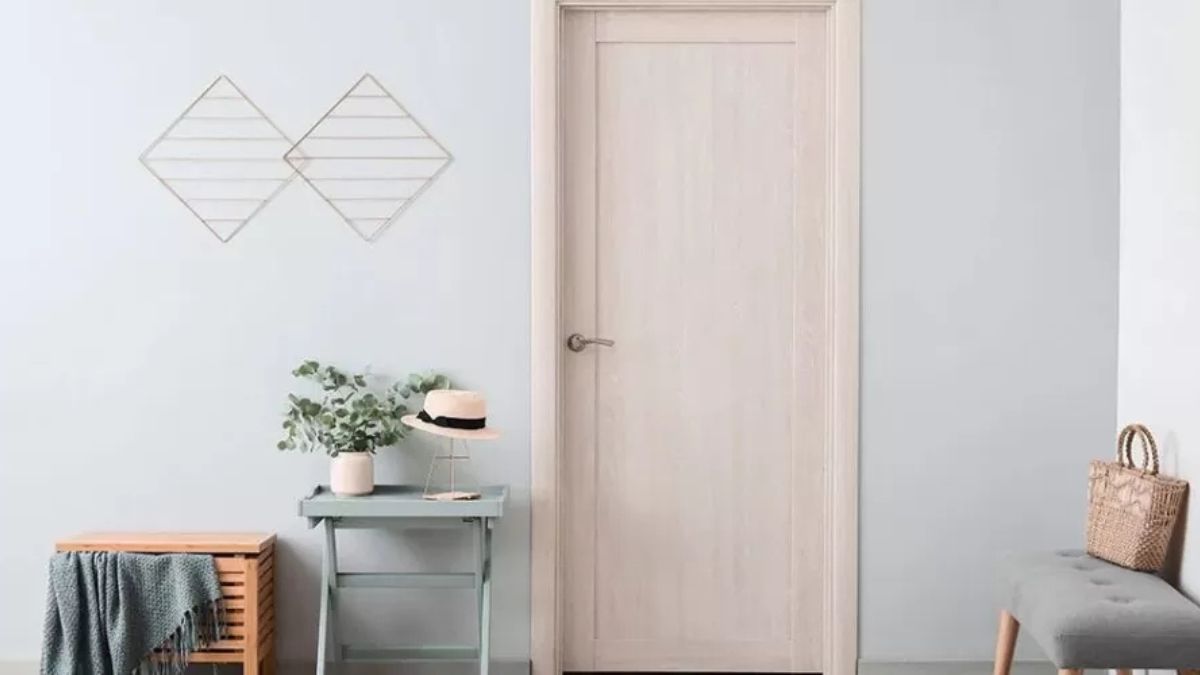
Choosing the right door for your home can transform not just a room, but the entire feel of your space. Among the popular options are rebated doors and swing doors—two styles that offer distinct features and aesthetics. Each has its own charm and functionality, making them worthy contenders in modern interior design. Whether you’re renovating or building from scratch, understanding these two types will help you make an informed decision that aligns with your style and needs. Let’s dive into what sets rebated doors apart from swing doors and uncover which is best suited for contemporary interiors!
Pros and Cons of Rebated Doors
Rebated doors offer a sleek and modern look, blending seamlessly into contemporary interiors. Their design includes a recessed edge that allows for better insulation and soundproofing. This feature is particularly beneficial in multi-room homes or apartments.
On the downside, installation can be tricky. It often requires precise measurements to ensure a perfect fit within the frame. If not done correctly, it can lead to gaps that diminish their aesthetic appeal.
Another advantage is security; rebated doors are generally more resilient against forced entry due to their construction. However, they may require specialized hardware for locks and hinges, which can increase overall costs.
Maintenance tends to be straightforward as well, but any warping over time could necessitate repairs or replacements sooner than anticipated. Balancing these pros and cons helps determine if rebated doors align with your specific needs and lifestyle choices.
Pros and Cons of Swing Doors
Swing doors offer a timeless charm and practicality, making them a popular choice in various settings. One major advantage is their ease of use. They can be pushed or pulled open with minimal effort, which is especially beneficial in high-traffic areas.
Another pro is the versatility in design. Swing doors come in numerous styles and finishes, allowing homeowners to match them seamlessly with their interior decor.
On the downside, swing doors require ample space to operate fully. This can be restrictive in smaller rooms or tight hallways where movement may be impeded.
Additionally, they might not provide as much sound insulation compared to other door types like rebated doors. If privacy is a concern, this could be an issue worth noting for certain environments.
Swing doors are susceptible to drafts if not properly fitted, potentially affecting energy efficiency over time.
Factors to Consider when Choosing Between Rebated and Swing Doors
When selecting between rebated and swing doors, several factors come into play. First, consider the space available. Rebated doors are often more suitable for smaller areas due to their flush design, while swing doors require additional clearance.
Next is functionality. Think about how frequently the door will be used. If you’re looking for a door that provides easy access and can handle high traffic, a swing door might be your best bet.
Aesthetics also matter significantly in modern interiors. Rebated doors offer a sleek and minimalist look that blends seamlessly with contemporary designs. In contrast, swing doors provide classic charm but may disrupt clean lines.
Assess your budget and installation preferences. The complexity of each type can influence both cost and labor involved during installation. Understanding these aspects will guide you on which style fits best with your vision.
Design Aesthetics: Which Door Style is Best for Modern Interiors?
When considering design aesthetics, the choice between rebated and swing doors can significantly impact the overall look of a modern interior. Rebated doors offer a sleek, minimalistic appeal. Their flush appearance creates clean lines that complement contemporary decor.
On the other hand, swing doors boast versatility in style and functionality. They can be ornate or simplistic, adapting to various themes while adding depth to spaces. The way they open adds an element of dynamism.
Color and material also play crucial roles in both options. Matte finishes on rebated doors enhance their understated elegance, while gloss or bold hues on swing doors make striking statements.
Your selection should align with your existing décor and personal taste. A thoughtful door choice not only serves its functional purpose but also elevates the entire room’s ambiance.
Installation Process and Cost Comparison
The installation process for rebated doors typically involves precise measurements and carpentry skills. These doors are designed to fit flush within the wall, requiring a more complex setup that may include framing adjustments. As a result, professional installation is often recommended.
In contrast, swing doors offer a more straightforward approach. They usually come with standard frames that can be easily installed by DIY enthusiasts or professionals alike. This simplicity reduces labor costs and time investment.
When considering costs, rebated doors tend to be pricier due to their intricate design and the need for skilled labor during installation. Swing doors generally fall in a lower price range, making them an attractive choice for budget-conscious homeowners looking for convenience without sacrificing style.
Each option has its financial implications, so assessing your specific needs will guide you toward the best decision.
Maintenance and Durability of Rebated vs Swing Doors
Rebated doors are typically more durable due to their design. The overlapping edges help protect against wear and tear, making them less susceptible to damage from daily use.
Their tight seal also minimizes exposure to moisture and dust, which can be a concern in modern interiors. When properly maintained, rebated doors can last for years without showing significant signs of aging.
On the other hand, swing doors offer easy access and versatility but may require more frequent upkeep. Their hinges are prone to wear over time, especially if they’re used heavily.
Regular lubrication is essential to keep them functioning smoothly. Additionally, swing doors can suffer scratches or dents since they often protrude into living spaces.
Considering these factors will guide you in selecting the right option based on your lifestyle needs and desired longevity.
Conclusion: Choosing the Right Door for Your Modern Interior Design Needs
Choosing the right door for your modern interior design needs can have a significant impact on both aesthetics and functionality. A rebated door offers a sleek, minimalist look that seamlessly integrates into contemporary spaces while providing excellent sound insulation. On the other hand, swing doors boast versatility and ease of use, making them ideal for high-traffic areas.
Consider factors such as your space layout, style preferences, and maintenance requirements when deciding between these two options. Both styles come with their own set of advantages and drawbacks; thus, understanding how each aligns with your vision is crucial.
Whether you lean towards rebated or swing doors will depend on what complements your unique interior environment best. Take time to evaluate not only the visual appeal but also practicality in everyday use—this way you’ll make an informed choice that enhances your living or working space beautifully!
HOME IMPROVEMENT
How to Make Your Apartment Feel Like Home

Introduction
Moving into a new apartment is a thrilling experience. Yet transforming it into a welcoming sanctuary is the true goal. An apartment should be more than just a place to live; it should reflect your personality and provide comfort, making it your haven from the bustling world outside. With creativity and effort, you can easily make your apartment feel like home, where every corner resonates with warmth and familiarity. This transformation focuses on enhancing comfort and functionality so that your living space becomes a reflection of who you are, offering solace and a place to thrive.
Personalize Your Space
The first step toward making your apartment feel like home is personalization. Incorporate meaningful items and reflect your tastes. Think of cherished photos, artwork, or heirlooms that tell your story. These touches create a familiar and inviting environment. Even if you’re living in Seattle rentals with a view, personalizing your space can transform it from a generic apartment into a cozy, personalized abode. These personal touches—like that photo from a family trip or a painting from a local artist—inject personality into the space, making it unmistakably yours.
Incorporating elements that resonate with your hobbies and interests, such as books, plants, or travel souvenirs, adds depth and character to your home. Mixing textures and colors that you love can also create a welcoming atmosphere that feels uniquely comfortable. If rental restrictions limit you, use removable wall decals, furniture covers, or decorative accessories to infuse your style without making permanent changes. Adding cozy lighting through floor lamps, candles, or string lights can set the mood and enhance the warmth of the space. Ultimately, personalizing your apartment boosts your comfort and makes it a true reflection of who you are, allowing you to create a sanctuary that feels just right for you.
Optimize Lighting
Lighting plays a crucial role in establishing the mood within your living space. To create a warm and inviting atmosphere, consider using a mix of ambient, task, and accent lighting. Floor and table lamps with adjustable settings can provide gentle illumination conducive to relaxation, while task lighting in kitchens and study areas can enhance functionality. String lights and lanterns add whimsical charm, perfect for cozy evenings or entertaining guests. Adjust lighting temperatures to suit different times of the day, using more astonishing lights for when you need to focus and warmer tones for winding down.
Creative Use of Textiles
Textiles like curtains, rugs, throws, and cushions bring warmth and coziness, making an apartment feel snug and inviting. Layering different textures can add depth and interest to your rooms. Choose plush throws in soft materials like wool or cashmere for your couch, and opt for a colorful rug to delineate spaces, especially in open-plan apartments. Fabric choices, such as linen or cotton, can offer comfort and elevate the aesthetic, adding to the overall homeliness of the space. Curtains can be functional and decorative; heavy materials provide privacy and insulation, while sheer drapes can soften the sunlight and add elegance.
Functional Furniture
Furniture should not only cater to your design preferences but also serve the practical needs of your household. Consider multifunctional pieces, such as a sofa bed for guests or a coffee table with built-in storage, to use your space best. Investing in functional and comfortable furniture ensures that your apartment supports day-to-day activities and moments of relaxation, creating an environment where you can unwind and entertain effortlessly. Look for accessories like ottomans that double as seating and storage or dining tables that can extend for larger gatherings. These elements help create an adaptive and welcoming home suitable for any occasion.
Embrace Color
Color is an expression of personality and can drastically change the feel of your home. While neutral tones provide a calming backdrop, splashes of color can energize the setting. Consider painting a feature wall to add character or introducing colorful accents through art and decor items. Experiment with hues that resonate with you, whether calming blues, vibrant yellows, or earthy greens, to create spaces that reflect your spirit and enhance your mood. Incorporate seasonal colors to keep your home fresh, or highlight vibrant inner-city vibes with bold artwork and decor that stands out against the urban landscape.
Decorate with Nature
Incorporating natural elements into your apartment has both aesthetic and health benefits. Houseplants like succulents, ferns, or peace lilies can purify the air and boost your mood with vibrant greenery. Additionally, natural materials like wood, stone, or rattan can add a touch of the outdoors to your interiors, fostering a connection with nature that promotes peace and relaxation. Create a mini indoor herb garden for freshness or position plants around your home to guide the eye toward focal points, creating a cohesive and calming atmosphere that brings balance to your environment.
Maintain Organization
Clutter can detract from the tranquility of your home. Implementing intelligent storage solutions will help maintain order and enhance the spaciousness of each room. Consider storage ottomans, shelving units, or under-bed storage to keep belongings neatly tucked away but easily accessible. A tidy apartment looks appealing and promotes a serene and stress-free environment where you can easily find solace. Regular cleaning routines and decluttering practices ensure your space remains organized. Use decorative baskets to tidy miscellaneous items and opt for custom shelving that fits awkward corners to maximize efficiency.
Conclusion
Making an apartment feel like home involves more than filling it with furniture. It requires thought, creativity, and a bit of personalization to curate a space that genuinely resonates with you. By focusing on lighting, textiles, color, and organization, you can create an inviting atmosphere that welcomes you at the end of each day. Let your apartment be a sanctuary that meets your functional needs and enriches your living experience with warmth and comfort. Invest in energy-efficient appliances or eco-friendly materials to align your home with sustainable practices, ensuring that your sanctuary is also a responsible choice for the planet.
-
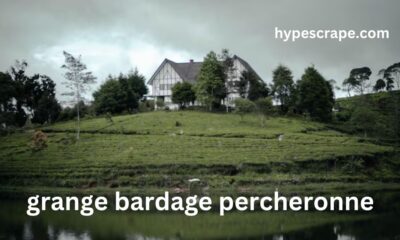
 BLOG1 year ago
BLOG1 year agoEscape to Tranquility Experience Grange Bardage Percheronne in Normandy
-

 LIFESTYLE1 year ago
LIFESTYLE1 year agoAir Jordan 1 Retro High Off-White University Blue
-

 SOCIAL MEDIA1 year ago
SOCIAL MEDIA1 year agoDecoding the Drive Social Media Pyramid Scheme Mystery
-

 LIFESTYLE1 year ago
LIFESTYLE1 year agoAir Jordan 4 Retro Metallic Purple
-

 BLOG9 months ago
BLOG9 months agoDecoding 540-315-8592: From Numbers to Messages
-

 HOW-TO GUIDES1 year ago
HOW-TO GUIDES1 year agoShop Smart and Save with Goldengatemax.shop Online Guide
-

 BUSINESS1 year ago
BUSINESS1 year agoDemystifying 315-442-5267 Common Myths and Facts Revealed
-

 LIFESTYLE1 year ago
LIFESTYLE1 year agoAir Force 1 Shadow Pistachio Frost
